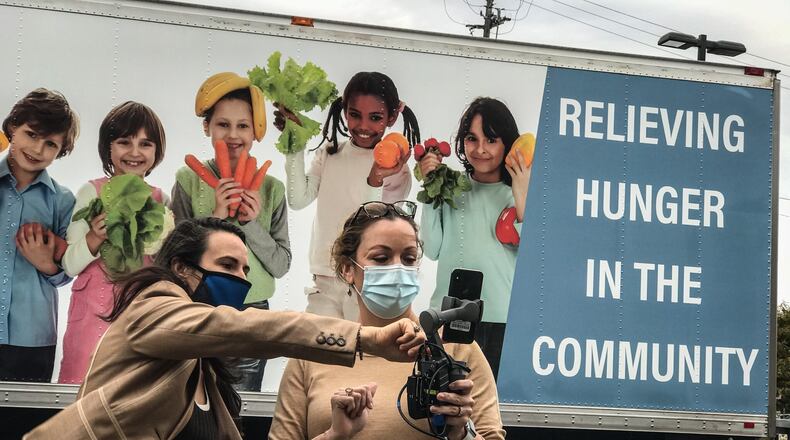The study found about half of nonprofits have experienced declines in donations. Corporate donations and earned income sources have also been hit hard. The source of revenue showing the least impact, so far, is government grants and contracts. Nonprofits told the authors of the survey they needed the most help with figuring out different ways to fundraise.
Some nonprofits surveyed said their budgets had been cut by just 10%, while others said they had no budget at all.
Many of the most affected charities in the Dayton region are in the arts, said Stephanie Llacuna, president of the greater Dayton regional chapter of the Association of Fundraising Professionals and a Philanthropy Officer at Dayton Children’s Hospital.
Llacuna said she’d heard from several arts charities that, given the hazards of putting on an event during the COVID-19 pandemic, have canceled events all together, and have suffered because their normal funding, like ticket sales, have decreased or disappeared.
Sue Stevens, a spokeswoman for Dayton Live, said the organization had posted a $2 million loss for the fiscal year that ended on June 30, which does not include any losses they would have incurred since then.
“Donations to arts groups are down as well, since social service agencies are naturally needing more support than ever and many individuals have lost jobs,” Stevens said. “We are so grateful to those who have continued to donate and make special gifts during this difficult time.”
The Ohio State study indicated about 33% of Ohio nonprofits are delivering their programs in a severely reduced capacity and another 26% are delivering their programs in a moderately reduced capacity. About 14% of the nonprofits surveyed said they were not delivering any programs at all during this time.
Llacuna said individual donors have been able to help some arts charities.
Llacuna said she was optimistic for the future given how the arts are naturally innovative and continue to find new ways to present their work in a socially distanced world. She said she is also optimistic because many nonprofits have been able to change the way they fundraise, and be successful in other ways.
Llacuna also fundraises for Dayton Children’s Hospital and said that some members of the community had been able to donate once the pandemic started, and the hospital was able to set up some COVID-19 relief funds for families in need.
“It’s been a difficult time for the hospital, in spite of COVID-19, we’re still seeing kids with cancer, still seeing kids come into the emergency room with various incidents, and we’re still in a mental health crisis in our community and the pandemic is only making that worse,” she said.
Vicki Braun, president and CEO of Oak Tree Corner, a nonprofit that helps children experiencing grief, said Oak Tree Corner was sending out their second mailing of fundraising during the pandemic. Their first round of mailing was, “down a bit but not horrible,” she said.
Credit: @AndySnow3
Credit: @AndySnow3
Lee Lauren Truesdale, chief development officer for The Foodbank, said fundraising this year and in 2019 for the Foodbank looked very different from prior years. The local community stepped up to give when the pandemic hit and also when the tornadoes hit the Miami Valley last year, she said. That ended up being their biggest giving seasons during the year, rather than the usual giving season in November and December, Truesdale said.
Truesdale said while giving hasn’t been down this year, the organization has needed all the funding they can get because they have had to change the way they deliver food, hire extra staff to replace staff who had to quarantine or had family members at a high risk, and buy extra food when their usual suppliers were not able to donate food the way they previously had been able to.
“The community has been incredibly responsive in making sure that everyone has what they need during this crisis and of course during the tornadoes as well,” she said.
Llacuna suggested that those who are able to donate reach out to their favorite charities and ask how they can help. She said charities can also accept some more unconventional donations, such as real estate and stocks.
“People are still stepping forward, individual donors are stepping forward to help keep our mission strong,” she said.
About the Author


